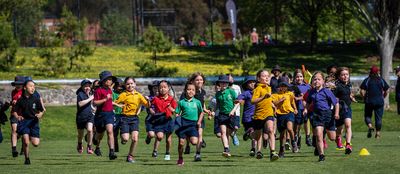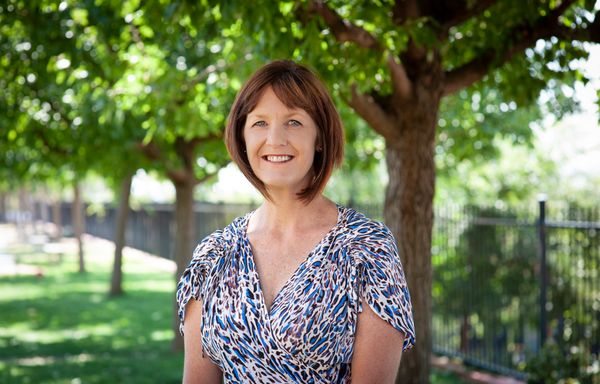JS News: 13 Oct 2021
By Karen Mahar, Assistant Principal Deputy Head of Junior School
We are grateful for the sustained efforts of each member of our community to meet the ongoing challenges of lockdown and remote learning. The open communication, helpful feedback and heartfelt messages of support have all been appreciated.

The countdown has begun…
With our region planning to reduce restrictions of the current lockdown on Friday 15 October, thoughts turn to enjoying a slightly more normal version of life and becoming excited about doing things we previously took for granted. Whether it’s meeting up with long-time friends or family, in-person, returning to sport or visiting the gym, or simply heading out for a haircut, we can all get excited about doing the simplest of things.
We look forward to welcoming our teachers and students back to our JS classrooms and learning spaces.
- Pre-K, Kindergarten, Year 1, Year 2 and Year 6 on Monday 25 October
- Year 3, Year 4, and Year 5 on Monday 1 November
As restrictions begin to ease, there will also be a need to transition back into the broader community and this may involve helping each other to do so. For children, this will mean returning to school for face-to-face learning in the classroom. Just as the transition to learning from home took some time for children and families to get used to, so too may the adjustment back to school life.

Some advice for kids
Get ready
- Try on your school uniform and school shoes. You may have had a growth spurt and it may not fit!
- Get organised and pack your bag the day before school starts.
- Years 3-6 students are encouraged to bring a mask.
Be safe
- It’s a good idea for students in Years 3-6 to wear a mask while at school.
- Wash your hands or use hand sanitiser during the day and before eating.
- Stay home if you are unwell.
Feelings
- Just so you know, it’s ok to have different feelings when coming back school. You may feel worried, nervous, angry or happy, excited or any feeling in between.
- Talking to friends and family can be helpful. You can talk to your teacher or someone at school if you’d like to.
School work
- Try your best. Let your teacher know what you found easy or hard when working from home. They are there to help you.
Be kind
- Be kind to your classmates. Invite them to play a game with you.
- Be patient. It’s been a while since we have all been together. If you feel a bit annoyed or frustrated while playing or learning, try taking some deep breaths, walking away to another area or talking about it with your teacher.
Have some fun
- Have fun with your class and teacher. Use your break times to spend some time outside playing with your friends.
- Don’t forget to eat breakfast! Pack a healthy lunchbox and water bottle for school. This will help you feel energised during the day.
Sleep
- Make sure you go to bed on time! Sleep helps us concentrate, learn and enjoy the day at school. Put your devices in another room, so your sleep is not disturbed.
- You might notice you are more tired than usual. That’s ok, after a while you will get back into your normal school routine.

Some suggestions for parents and carers
Some children may feel anxious, scared, reluctant, excited or just overwhelmed.
Their feelings may vary depending on their age and stage of development, and family situation. How children feel about returning to school may vary between children in the same family, and it may also vary day-to-day for a particular child. It’s important for you, as a parent or carer, to acknowledge the changes and talk with your children about returning to school.
1. Listen and support
- Talk to your child about how they’re feeling.
- Listen to them and reassure them that it’s normal to feel anxious, scared, overwhelmed or worried about going back to school. It’s also normal to feel excited at the same time as feeling stressed or scared about the changes and lifting of restrictions.
- Talk to your children about the positives of the upcoming changes, including what they like to do at school that they haven’t been able to do at home during remote learning.
2. Create a plan
Make a plan for the first day and first week of school. Planning can help reduce stress and anxiety by adding structure and routine to new, changed or uncertain situations
- Allow time for play, relaxation and homework, as well as some tasks around the home which are suitable for your child’s age and stage of development.
- Set up some playdates with school friends (while adhering to ACT Government requirements for social gatherings) to help your children feel connected with the school community outside the classroom.
- Get back into a routine, including dinner, bath and bed times.
- Stay calm and allow time for your children to transition and settle back into school.
- Support kids to get plenty of rest, particularly in the first week or two after returning to school, as they will be adjusting to a much busier schedule than what they might have recently been used to.
- Make positive statements to your children about what they’re doing well, and how they’re coping with the challenges and expectations placed on them.
- Build in some ‘down time’ at home when children return home after a school day. If possible, go for a walk together to the park, or engage in a relaxing activity together, and provide a healthy after-school snack.
- As a family, plan some fun recreational and social activities to look forward to on the weekends.
3. Give it time
It’s important to be aware that any transition can take time and every child will be different. Some will bounce back into old routines immediately, while others might take longer to readjust.
4. Get help if needed
Helpful actions you might take:
- Discuss any concerns with your child’s teacher
- Contact Karen Mahar or the JS leadership team
- Contact the JS counselling team
- Make an appointment with your GP
- Phone Kids Helpline.

